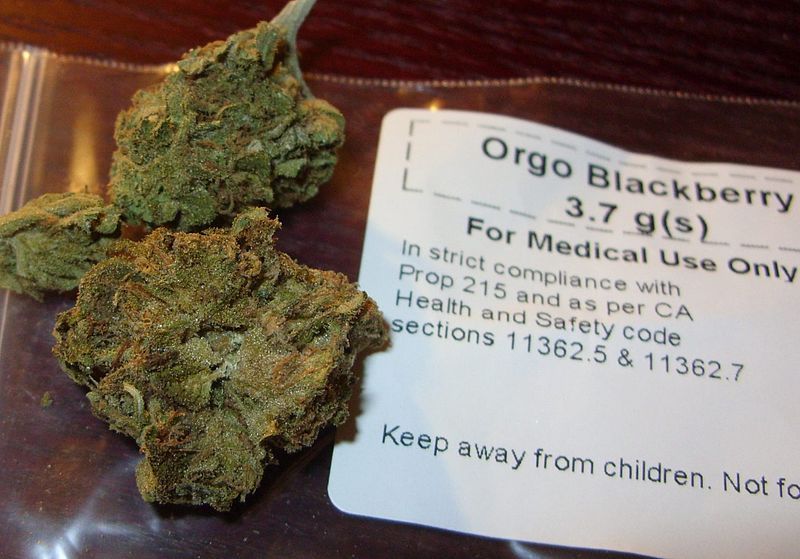Find a Close-by Medical Marijuana Dispensary for High Quality Products
Find a Close-by Medical Marijuana Dispensary for High Quality Products
Blog Article
Shedding Light on What Medical Cannabis Can Treat: a Thorough Analysis of Its Therapeutic Qualities
In recent years, there has actually been a growing rate of interest in the therapeutic possibility of medical marijuana. While unscientific evidence is plentiful, a detailed exam of the clinical data pertaining to the performance of medical cannabis in dealing with these problems is warranted.
Persistent Pain Management
Persistent pain monitoring remains an important facet of clinical treatment, demanding a comprehensive method for efficient treatment. Over the last few years, medical cannabis has emerged as a potential therapeutic option for individuals experiencing persistent discomfort conditions. The endocannabinoid system, which plays a vital function hurting modulation, has been targeted by cannabis-based therapies to relieve symptoms and boost lifestyle for clients.

Additionally, medical marijuana provides a promising choice for clients that experience intolerable negative effects from traditional discomfort drugs. Its capacity to address pain through a different device makes it a valuable addition to the toolbox of therapies available for persistent pain monitoring.
Epilepsy Therapy Prospective
Clinical marijuana has revealed promising possibility in the treatment of epilepsy, offering a novel therapeutic method for taking care of seizures in patients. Epilepsy is a neurological condition identified by recurring seizures, affecting individuals of every ages. Conventional therapies for epilepsy include antiepileptic drugs, yet these drugs may not work for all patients and can have significant adverse effects.
Research on the use of medical marijuana for epilepsy has actually revealed motivating results. Cannabidiol (CBD), a non-psychoactive compound discovered in marijuana, has been especially highlighted for its anticonvulsant buildings. Research studies have actually shown that CBD can decrease the regularity and seriousness of seizures in individuals with treatment-resistant kinds of epilepsy, such as Dravet syndrome and Lennox-Gastaut syndrome.
Moreover, the FDA has actually approved a CBD-based medicine, Epidiolex, for the treatment of seizures related to these extreme forms of epilepsy. This turning point highlights the growing recognition of clinical cannabis as an important therapeutic option for handling epilepsy and offers expect individuals who have not reacted well to standard therapies.
Nausea Relief Perks
The alleviation of nausea or vomiting via the usage of marijuana has been increasingly acknowledged for its therapeutic benefits in various medical problems. Queasiness and throwing up prevail symptoms experienced by patients undertaking radiation treatment, those with stomach conditions, and people with persistent discomfort conditions. Medical cannabis, with its energetic substances such as THC and CBD, has shown guarantee in providing remedy for nausea or vomiting.

Moreover, medical cannabis supplies an all-natural option for individuals that do not react well to standard anti-nausea medications or who experience extreme side impacts Get the facts from these medications. Patients undertaking radiation treatment, particularly, have reported significant improvements in their quality of life when utilizing cannabis to handle nausea. As research study in this area continues to expand, clinical cannabis is increasingly being considered as an important option for queasiness relief in different medical settings.
Anxiety Reduction Impacts
Studies have shown the possibility of cannabis in reducing anxiety signs and symptoms via its communication with the endocannabinoid system. The endocannabinoid system plays an important function in regulating emotions, consisting of stress and anxiety, by preserving homeostasis in the body. Cannabinoids in cannabis, such as THC and CBD, engage with the endocannabinoid receptors in the brain, especially the CB1 and CB2 receptors, to modulate anxiety-related actions.

People with conditions like generalized anxiousness disorder (GAD), social stress and anxiety problem, and post-traumatic stress problem (PTSD) might benefit from the anxiolytic homes of marijuana (Medical Marijuana Card Near me). Nonetheless, further research study is needed to identify ideal does, distribution methods, and long-term results on greater elgin family care center stress and anxiety administration.
Possible for Inflammation Control
With its well-known anti-inflammatory buildings, cannabis has actually revealed assurance in potentially regulating swelling within the body. Swelling is the body's natural action to injury or infection, however when it becomes chronic, it can add to different illness such as joint inflammation, inflammatory digestive tract condition, and also heart condition. Study suggests that the cannabinoids located in marijuana, such as THC and CBD, can aid control the immune action and lower inflammation.
Studies have actually shown that cannabis can interact with the endocannabinoid system, which plays a crucial function in managing swelling. By targeting the cannabinoid receptors, marijuana compounds can modulate the immune action, causing a decrease in inflammation levels. This makes marijuana a prospective candidate for managing inflammatory conditions where traditional therapies have failed.
Additionally, cannabis-derived products like CBD oil have actually acquired appeal for their anti-inflammatory buildings, with numerous people using them as a natural treatment for conditions connected with inflammation. While more study is needed to totally comprehend the devices behind marijuana's anti-inflammatory results, current searchings for show appealing outcomes for the possible use of clinical cannabis in managing swelling.
Final Thought
In conclusion, clinical cannabis has actually revealed encouraging healing residential or commercial properties in taking care of persistent discomfort, treating epilepsy, relieving queasiness, minimizing stress and anxiety, and controlling swelling. Its potential benefits in numerous medical conditions highlight the relevance of further research and exploration into its medical use. The proof recommends that medical cannabis might be a valuable option treatment choice for clients looking for remedy for a variety of problems and symptoms.
In recent years, medical cannabis has actually emerged as a potential restorative choice for individuals enduring from chronic pain problems.Medical cannabis has actually shown promising capacity in the treatment of epilepsy, using an unique restorative method for managing seizures in individuals. As research study in this area continues to grow, medical marijuana is progressively being thought about as a valuable alternative for nausea or vomiting alleviation in numerous clinical settings.
In conclusion, clinical cannabis has revealed promising restorative residential or commercial properties in managing persistent pain, dealing with epilepsy, eliminating nausea or vomiting, lowering anxiety, and regulating inflammation. The proof suggests that clinical cannabis might be an important alternative treatment alternative for patients looking for alleviation from an array of conditions and signs.
Report this page